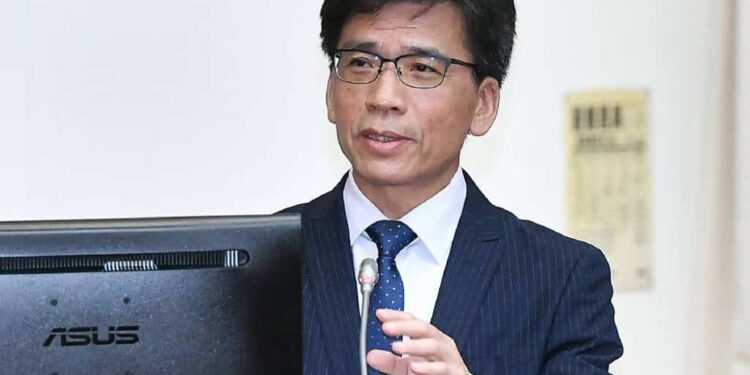Taiwan’s FSC Charts a Course for Comprehensive Virtual Asset Regulation: A Phased Yet Robust Approach
Taipei, Taiwan – In a significant move signaling Taiwan’s commitment to fostering a secure and well-regulated digital asset landscape, Financial Supervisory Commission (FSC) Chairman Peng Jin-long today (March 30) presented a detailed report on the “Virtual Asset Service Act Draft” to the Finance Committee. Chairman Peng articulated a “gradual, cautious, and friendly” principle for overseeing cryptocurrencies and stablecoins. However, he emphasized that upon the special law’s enactment, virtual asset service providers (VASPs) will be subject to “high-level supervision,” mirroring traditional financial institutions. This announcement follows recent enforcement actions, with the FSC having already levied over NT$13 million in fines against 11 crypto exchanges this year for anti-money laundering (AML) deficiencies.
Elevating Supervision to a “Quasi-Financial” Standard
Concerns were raised by Legislator Lin De-fu regarding Taiwan’s relatively low cryptocurrency investment penetration—under 5% compared to 10-15% in the U.S. and South Korea—despite the FSC having approved and regulated nine VASPs. He questioned whether the FSC should accelerate its regulatory pace to align with international market trends.
Chairman Peng acknowledged the rapid evolution of virtual assets but underscored their status as a “developing market,” not yet possessing the maturity of established capital or financial markets. He noted that most nations are still in the foundational stages of regulatory development, positioning the FSC’s approach as “not rushed, but equally determined not to lag behind.”
Crucially, Chairman Peng affirmed that the forthcoming special law will categorize virtual asset operators as “quasi-financial institutions,” subjecting them to stringent oversight. This will mandate adherence to specific standards for capital adequacy, internal audit and control mechanisms, and financial reporting. Furthermore, to bolster fraud prevention, existing regulations, which currently only require “inter-industry information sharing,” will be expanded under the new law to encompass “cross-industry information sharing and reporting.”
Enforcing Compliance: Over NT$13 Million in Fines for AML Deficiencies
This year, the FSC conducted comprehensive financial inspections of 12 virtual asset operators. These inspections uncovered significant shortcomings in their anti-money laundering (AML), combating terrorist financing (CFT), and preventing the proliferation of weapons of mass destruction (WMD) protocols. Acting on recommendations from the Inspection Bureau, the Securities and Futures Bureau has since imposed penalties, resulting in over NT$13 million in aggregate fines against 11 operators to date.
Laying the Groundwork: 8 Sub-laws and a Dedicated Stablecoin Framework
According to a written explanation pre-announced yesterday (March 29), the “Virtual Asset Service Act” draft is currently under review by the Executive Yuan. Should it successfully navigate the legislative process, the FSC anticipates finalizing the drafting of eight crucial sub-laws as early as the first half of next year.
Seven of these proposed sub-laws are specifically tailored for Virtual Asset Service Providers (VASPs), providing comprehensive guidelines across various operational domains. These include requirements for company establishment, robust financial management, stringent internal audit and control systems, advanced information security maintenance, meticulous outsourcing procedures, and effective mechanisms for fraud prevention and abnormal transaction handling.
A cornerstone of the new framework will be the strict segregation of VASP’s proprietary assets from client assets, alongside the establishment of robust margin and trust systems. The FSC also plans to empower industry associations to foster self-regulatory practices, thereby contributing to a more orderly and trustworthy market environment.
Among the eight sub-laws, particular attention is drawn to the final one: the Stablecoin Issuance and Management Regulations. This landmark regulation aims to establish clear criteria for issuer qualifications, minimum paid-in capital requirements, application procedures, permissible stablecoin types, approved application scenarios, grounds for permit revocation, requirements for reserve asset setup and regular audits, and precise operational protocols for stablecoin issuance and redemption.
The FSC has indicated a preliminary preference for established banking institutions, possessing the capability for “fully reserved assets,” to be prioritized as stablecoin issuers, underscoring a cautious yet progressive approach to digital currency innovation.
The FSC emphasized that the passage of this special law will signify a fundamental shift in regulatory oversight. The supervisory framework will evolve from the current registration-based anti-money laundering focus to a comprehensive “licensed business supervision.” This expanded scope will encompass vital areas such as investor protection, financial stability, and market fairness. Concurrently, the FSC pledges to fortify financial inspection capabilities and enhance anti-fraud protection mechanisms, ensuring that market risks remain controllable and transaction security is paramount.
Disclaimer: This article is for market information purposes only. All content and views are for reference only, do not constitute investment advice, and do not represent the views and positions of BlockTempo. Investors should make their own decisions and trades. The author and BlockTempo will not bear any responsibility for direct or indirect losses resulting from investor transactions.





